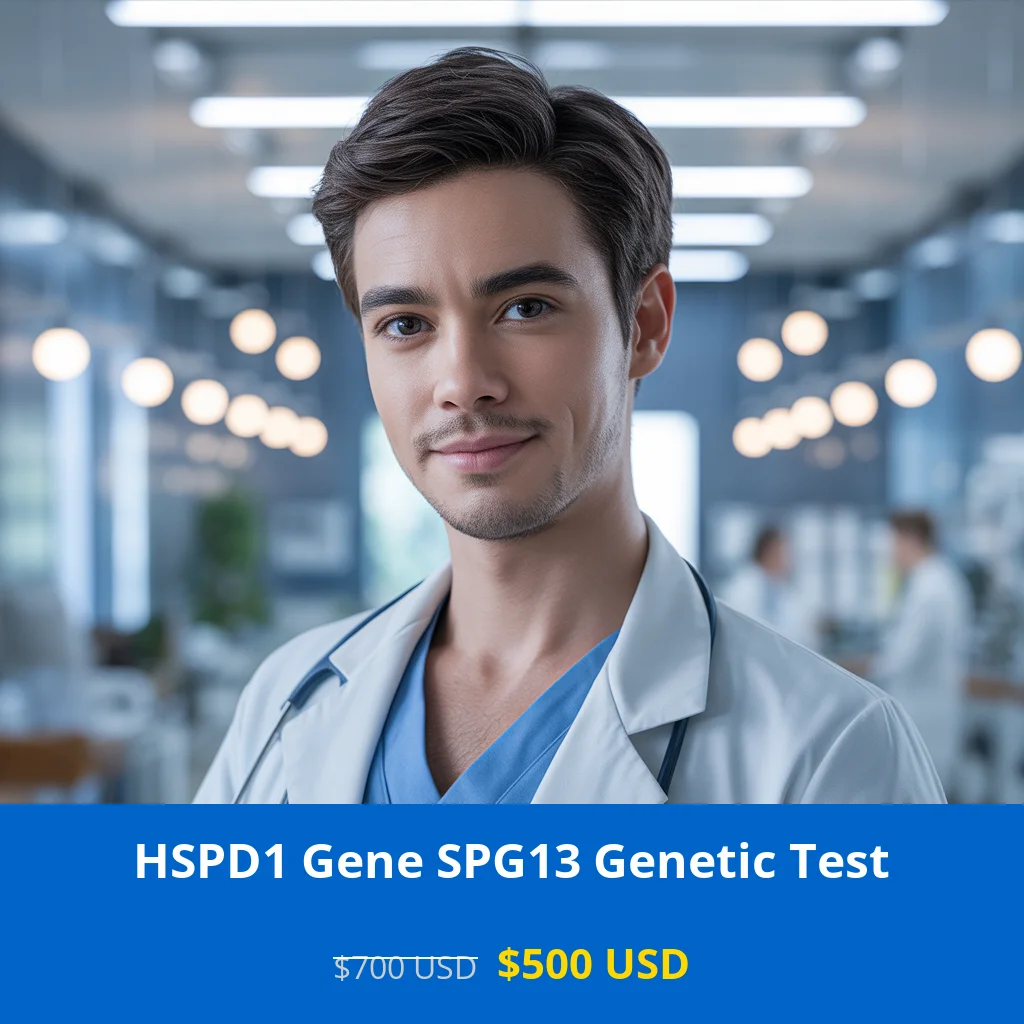HSPD1 Gene SPG13 NGS Genetic DNA Test
Comprehensive Genetic Testing for Hereditary Spastic Paraplegia
The HSPD1 Gene SPG13 NGS Genetic DNA Test represents a breakthrough in neurological genetic diagnostics, offering precise detection of mutations associated with hereditary spastic paraplegia type 13. This advanced genetic test utilizes cutting-edge next-generation sequencing technology to analyze the HSPD1 gene, which encodes heat shock protein 60 (HSP60) – a critical mitochondrial chaperone protein essential for proper neurological function.
What Does This Test Measure?
This comprehensive genetic analysis specifically targets the HSPD1 gene located on chromosome 2q33.1, identifying pathogenic variants that lead to SPG13, an autosomal dominant form of hereditary spastic paraplegia. The test examines:
- Point mutations, insertions, and deletions in the HSPD1 gene
- Single nucleotide variants affecting protein function
- Genetic variations that disrupt mitochondrial protein folding
- Mutations impacting the chaperone activity of HSP60
Who Should Consider This Test?
This genetic test is recommended for individuals experiencing:
- Progressive muscle stiffness and spasticity in the lower limbs
- Difficulty walking or changes in gait pattern
- Family history of hereditary spastic paraplegia
- Unexplained neurological symptoms beginning in adulthood
- Muscle weakness that predominantly affects the legs
- Increased muscle tone and hyperreflexia
- Urinary urgency or other autonomic symptoms
Clinical Benefits of Genetic Testing
Early genetic diagnosis through HSPD1 testing provides numerous advantages:
- Accurate Diagnosis: Confirms SPG13 and differentiates from other neurological conditions
- Family Planning: Enables informed reproductive decisions and genetic counseling
- Treatment Guidance: Helps neurologists develop targeted management strategies
- Prognostic Information: Provides insight into disease progression and expected symptoms
- Clinical Trial Eligibility: Opens opportunities for participation in research studies
Understanding Your Test Results
Your genetic test results will be carefully interpreted by our team of certified genetic counselors and neurologists:
- Positive Result: Indicates the presence of a pathogenic HSPD1 mutation confirming SPG13 diagnosis
- Negative Result: Suggests SPG13 is unlikely, though other genetic forms of HSP may need consideration
- Variant of Uncertain Significance: Requires additional family studies and clinical correlation
- Carrier Status: Important for family members and reproductive planning
Test Details and Pricing
| Test Component | Details |
|---|---|
| Test Name | HSPD1 Gene SPG13 NGS Genetic DNA Test |
| Regular Price | $700 USD |
| Discount Price | $500 USD |
| Turnaround Time | 3 to 4 Weeks |
| Sample Type | Blood, Extracted DNA, or One Drop Blood on FTA Card |
| Testing Method | Next-Generation Sequencing (NGS) |
Pre-Test Requirements
Before undergoing testing, we recommend:
- Comprehensive clinical history documentation
- Genetic counseling session with our certified specialists
- Development of a detailed family pedigree chart
- Discussion of testing implications and potential outcomes
Nationwide Accessibility
We have diagnostic centers conveniently located across the United States, serving major metropolitan areas including New York, Los Angeles, Chicago, Houston, Phoenix, Philadelphia, San Antonio, San Diego, Dallas, and San Jose. Our network ensures accessible genetic testing services for patients throughout the country.
Take Control of Your Neurological Health
Early genetic diagnosis can significantly impact your quality of life and treatment outcomes. Our team of neurological genetics specialists is ready to guide you through the testing process and help interpret your results within the context of your clinical presentation.
Ready to schedule your HSPD1 Gene SPG13 NGS Genetic DNA Test? Contact our genetic counseling team today at +1(267) 388-9828 or book your appointment online. Take the first step toward understanding your genetic predisposition to hereditary spastic paraplegia and developing an effective management plan with your healthcare provider.







